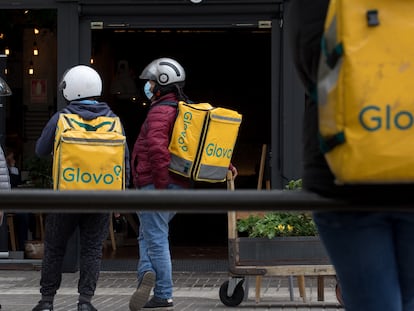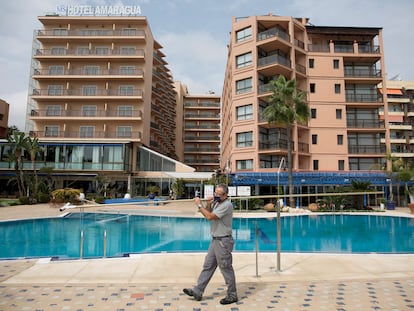Spain extends ERTE furlough scheme until January 31
The deal, which has received the green light from unions and employers, also includes new support for self-employed workers affected by the coronavirus crisis

The Spanish Cabinet on Tuesday approved an extension to the ERTE furloughing scheme for companies affected by the coronavirus crisis. The deal, which extends the furlough conditions until January 31, was finalized after 10 hours of last-minute negotiations on Monday between representatives of the Labor and Social Security ministries, unions and employer associations.
Under the system, companies suffering losses from the Covid-19 pandemic and the confinement measures can temporarily send home workers or reduce their working hours. Thousands of businesses have filed for ERTEs since the Spanish government introduced a lockdown in mid-March. This is the third time that the scheme, which was due to end on September 30, has been extended.
This agreement ensures the continuity of the largest number of companies and jobs possibleSpanish Business Confederation
After a marathon meeting on Monday, the Labor Ministry and Social Security Ministry reached an agreement with Spain’s two largest unions, the UGT and CCOO, to extend the furlough scheme. There were doubts about how the Spanish Business Confederation (CEOE) would receive the plan, but the CEOE’s executive committee unanimously approved the deal on Tuesday. Spain’s other main business association, Cepyme, also supported the agreement.
“The executive committee has agreed after great debate to unanimously accept the last proposal to extend the ERTE agreement, after intense negotiations that went on until the early hours of this morning,” the CEOE said in a statement published on Tuesday. “This agreement ensures the continuity of the largest number of companies and jobs possible in such an adverse and lengthy economic crisis,” the statement added.
The pact maintains unemployment aid at 70% and does not reduce a worker’s right to ask for support in the future. The government has also created an extraordinary benefit for people who have lost their job but don’t have access to unemployment aid, like temporary workers. The deal also makes it possible to combine ERTE support with part-time work in some instances. As for businesses, their employee social security contributions will be subsidized anywhere between 70% and 100% depending on the size of the company and the time of the year: state aid will decrease gradually between October and January (see bottom box).
The agreement follows nearly one month of negotiations. Like the previous two agreements to extend the scheme, the approval of the CEOE posed the biggest stumbling block. But unlike in the previous negotiations, the CEOE had not expressed an opinion on the government’s proposal or the final details. Indeed on Monday, the head of the CEOE, Antonio Garamendi, publicly spoke of his reluctance to agree to the deal. Garamendi, however, expressed his support for the agreement in an interview with the Catholic radio station COPE on Tuesday morning.
The general secretary of the UGT union, Unai Sordo, also praised the deal. “We have a very positive assessment of the agreement to renew the ERTE because it is a regulation that is very favorable to the interests of workers. ERTEs can continue to be an alternative to layoffs,” he said in a message on Twitter.
Special support for self-employed workers
The new ERTE agreement also includes extra support for self-employed workers who cannot access the aid available for loss of income. Under the current plan, aid is available to freelancers who can prove that their business activity fell at least 75% in the fourth quarter of 2020, with respect to the same period in 2019.
The new deal, however, will provide aid to self-employed workers who do not meet this criteria because they have a flat rate or have not made social security payments for at least 12 months. In order to be eligible, individuals need to prove that their income for the last quarter of 2020 was less than the minimum inter-professional salary, which is €950. Those who are eligible will receive 50% of the minimum contribution to social security, will not have to pay monthly social security fees and will remain listed as contributors.
Details of new agreement
English version by Melissa Kitson.









































